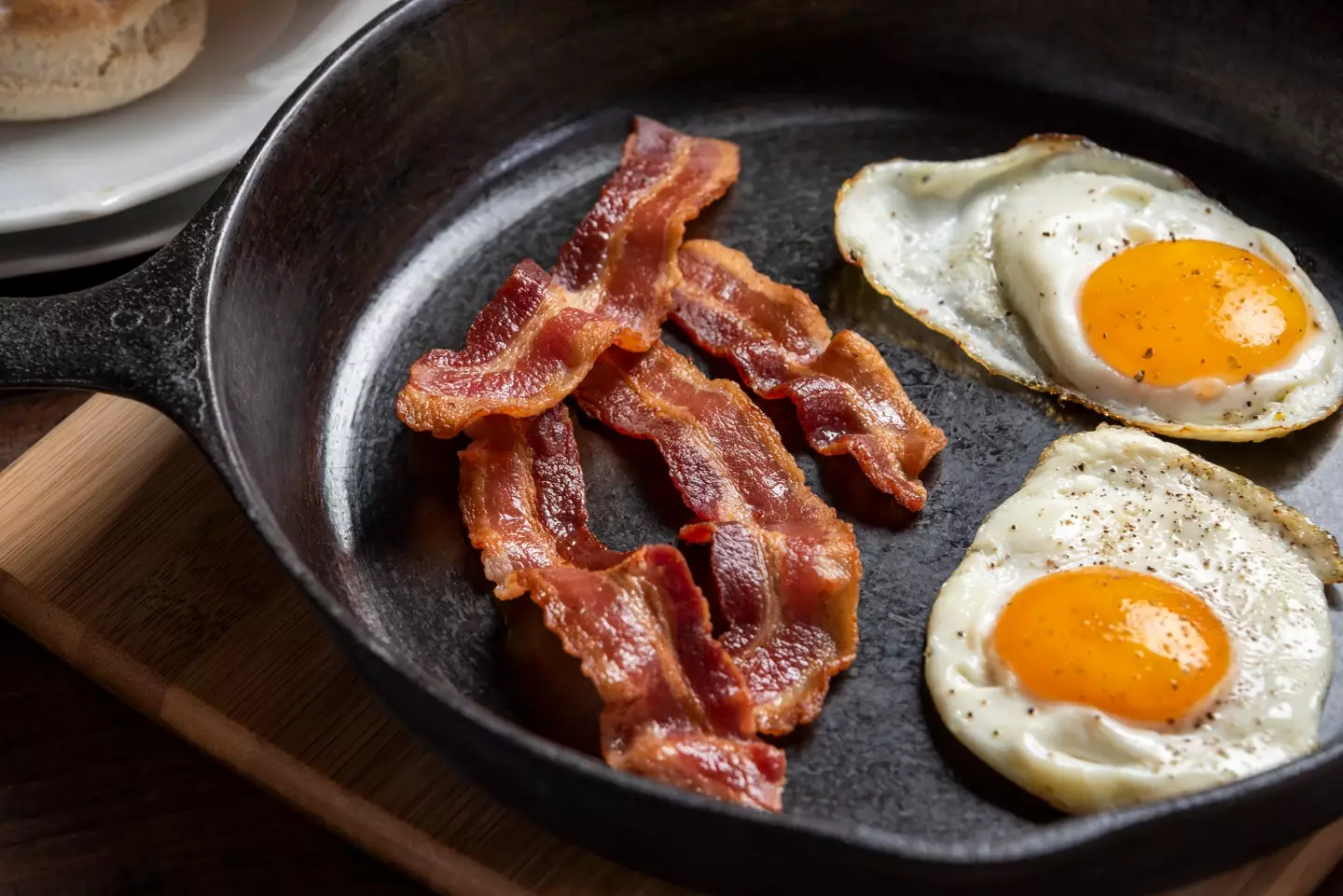
Researchers are urging the UK government to ban a key ingredient in bacon and other mass-produced processed meats from supermarkets following an eye-opening study linking consumption to more than 50,000 bowel cancer cases.
It’s been a decade since the World Health Organisation’s International Agency for Research on Cancer (IARC) branded bacon a Group 1 carcinogen - an agent that can cause cancer.
This shockingly places the breakfast staple and other processed meats in the same category as cigarettes and asbestos.
According to the NHS, bacon and other red meats should be limited to 70g (cooked weight) per day.
Advert
This is due to a previous study finding evidence of a higher risk of colorectal cancer in those with a higher intake of red and processed meats.
Now, a group of leading scientists has claimed that bacon and other mass-produced supermarket meats, like ham and salami, should be drastically changed by law - stating that consuming these products is responsible for thousands of cases of bowel cancer in the UK each year.

These experts have written to the UK health secretary, Wes Streeting, to explain how the combination of nitrates and methods in the production of meats, including sausages, promotes the ‘formation of nitrosamines, compounds with clear carcinogenic potential’.
The team, known as the Coalition Against Nitrates, urged ‘a long-term plan to phase out nitrite use in processed meats’ should be put in place.
Experts claimed Streeting should label the estimated 90 to 95 percent of packets of bacon and ham sold in Britain that contain the chemicals with ‘clear front-of-pack warnings on nitrite-cured products that communicate cancer risk to consumers and parents.’
The experts also wanted additional funding put in place to help local producers switch to healthier alternatives.
These demands come alongside accusations that successive British governments have done ‘virtually nothing’ to reduce the risk from nitrites in the decade since the initial WHO report was published in 2015.

Speaking about the Coalition Against Nitrates’ demands, Denis Corpet, an emeritus professor of food safety and nutrition at Toulouse University, said that consumers ‘deserve clear information’.
“Ministers have a responsibility to protect public health and reduce the risk of bowel cancer linked to these products and so should introduce mandatory warning labels on product packaging similar to ‘smoking kills’ on cigarettes.”
The Coalition Against Nitrates’ claims have been backed up by the World Cancer Research Fund (WCRF).
Kate Oldridge-Turner, the charity’s head of policy and public affairs, told The Guardian: “There is clear evidence that consuming processed meat increases the risk of colorectal cancer.
“This is through a complex set of reactions occurring in the body when processed meat is eaten, including the nitrites added during processing forming carcinogenic chemicals.”
Oldridge-Turner did not support the scientists’ call for warning labels on cured pork products.
Instead, she advised that ‘dietary guidelines and standards should reinforce limited consumption of all types of processed meat and steps should be taken to increase availability of healthy foods, especially in public settings such as schools’.
A Department of Health and Social Care spokesperson said to LBC: “The Food Standards Agency have made clear that the link between nitrates and nitrites and cancer remains inconclusive.
“We are tackling unhealthy diets by restricting junk food advertising on TV and online, banning energy drinks for under 16s, and a new deal with food retailers to cut obesity and promote healthier diets.”
